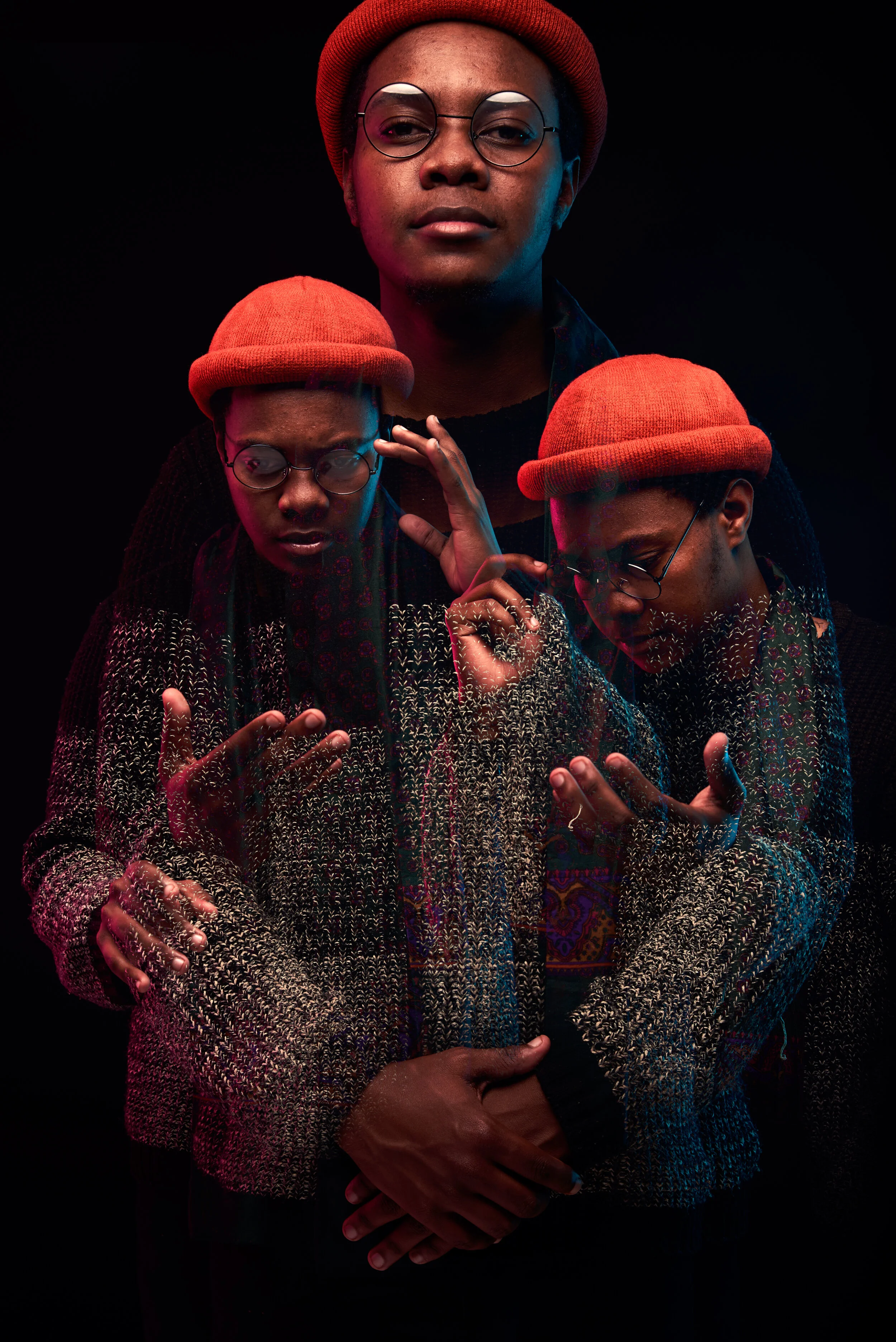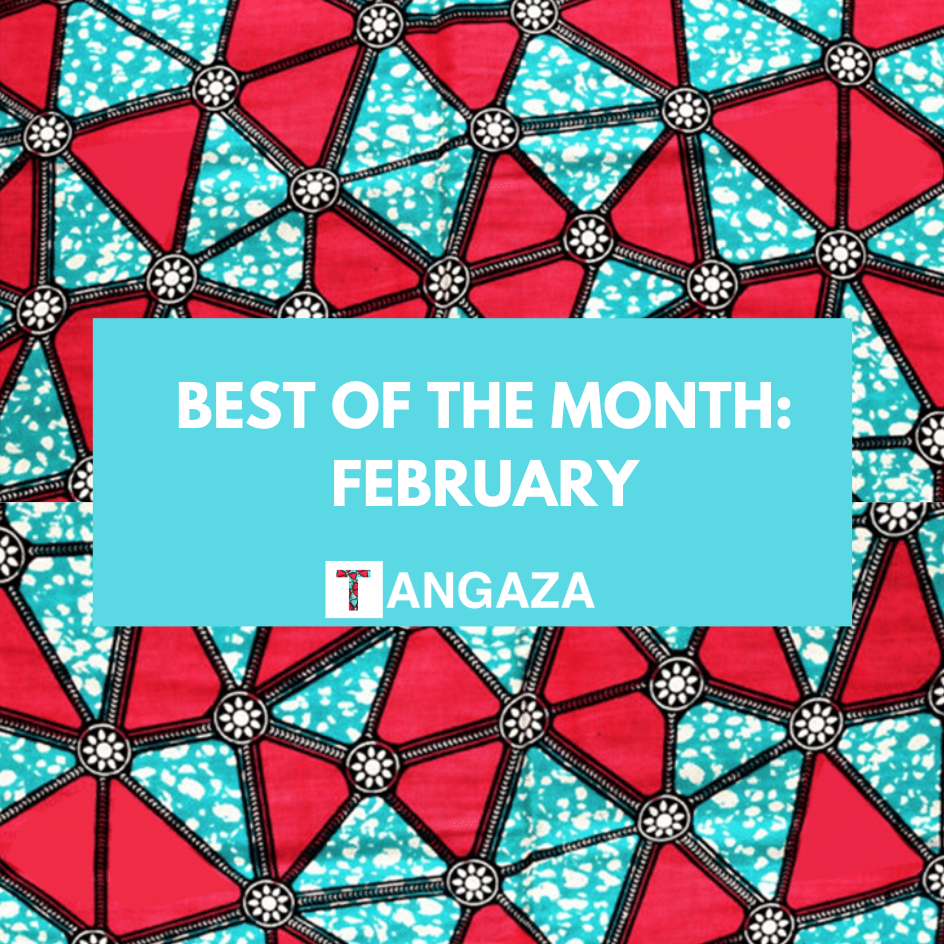It’s a warm, breezy, Friday afternoon in Nairobi. Westlands is buzzing with activity and a vibrancy that I have sorely missed. I arrive at The Foundry’s co-working space, where I am set to be meeting Mankind. Ochieng, in a camo hat, grey shirt and washed blue jeans, and Eugene, matching denim-on-denim and a pair of AF1’s, greet me with cheerful smiles and warm hugs and engage me in small talk as we make our way to the terraced restaurant. Cocooned by soft lounge music, we sit at the balcony, overlooking the gridlock traffic on Waiyaki Way.
Ochieng Owuor, 23, and Eugene Okumu Lowell, 25, are the minds behind Mankind. In an industry that favours mainstream over the experimental, the duo challenge the notions of what Kenyan music is “meant” to sound like. I’ll be the first to admit that I was late to jump on the Mankind bandwagon, having been captivated by the funky sounds and futuristic visuals of their 2018 single, ‘Take and Go’. However, I’ve been hooked ever since. Coining their sound as Afro Alternative, nothing about Mankind is conventional, from their eclectic and quirky personalities, to their unique vocal textures, intricate harmonies and their electrifying live performance. What I enjoy most about their music however is their honest and poetic storytelling. Listening to Mankind is like phoning an old friend.
Mankind was formed when the duo were in high school but both Ochieng and Eugene’s passions for music manifested from an early age. “I've loved music for as long as I can remember,” reminisces Eugene, “It was my dad who introduced me to music. He used to place me on his lap and he would toss me around with the rhythm. My mom used to tell him not to but he always found a way to sneak me in and play me music and eventually it was in me”
“The first time I ever said out loud that I wanted to be a musician I was 8,” Ochieng muses, “And then after some time, I sort of changed my mind. I wanted to be an academic. I had dreams of going to Harvard to study either law or medicine. But after some time, the call [to music] just kept coming. And it arrived at the right time. So when we met each other, I was ready.” When I ask how long it’s been since their journey as Mankind began, both hesitate slightly. “It’s been 9 or 10 years,” Ochieng ruefully comments.
Like yin and yang, Eugene and Ochieng’s energies are perfectly aligned which shines through in their music: “Our creativity works that way, it's complimentary. Sometimes we hear different things which is great because we make hybrid music.” However, as with any relationship, their bond has not come without compromise and “therapy-esque conversations” as Ochieng puts it. “It's not about winning, it's about achieving an understanding. And that almost always means giving something. And once you achieve an understanding, you always all really win. So I think, over time, we've learned to communicate with each other,” comments Eugene.
Their break-out track, ‘North’, off of their first project ‘M the EP’, launched Mankind into the spotlight. Since then, Mankind’s sound has continued to grow and evolve, reflecting the duo’s maturation as individuals and a group. Initially heavily influenced by Western pop culture, “from Coldplay to anything produced by Pharrell between 2003 and now” both Eugene and Ochieng now credit the majority of their inspiration as coming from home. “It isn't just music. It’s the lives of the people we lived close by. It’s our peers. Like I'll listen to a Karun track and I'm like oh, I really feel like making music now. Or Just A Band and Blinky Bill, after he went solo. It’s now almost exclusively African influence. We listen to your Fela Kuti's and Hugh Masekela's, and appreciate not just the music, but the ideal of it. Music with a purpose,” says Ochieng.
Mankind have often faced criticism that their music is too Westernized and therefore unrelatable to the ordinary Kenyan citizen. Growing up in a country where english is taught as a first language, and in a city where Western influence has permeated through almost every circle, one can’t blame them. However, Mankind have finally found their expression and the meaning of their art. Ochieng reflects on an encounter with genge pioneer Jua Kali, “I hate that he was right. I met him randomly in Kalif Records offices. I played him “North” and he was like, oh, this is nice, sounds ka ngoma za wazungu. Then he said, as long as you sound like this, we'll continue to be embraced at home and you won't. And I was like, oh, you'll see. After breaking my spirit, he said every artist gets to a point where they discover their art. What it means to be an artist to them. You haven't gotten there yet I can tell, but when you get there, you will know. So I hate that he was right. But yeah, he was spot on, like it feels so good to be here.”
In terms of what’s next for the duo, I was excited to learn that they are working on their Sophomore album. “I feel like, we can't really say anything about the new album because we don't it don't know it as much as we're trying to lead on. We just have sounds. But the one thing I know is it's home.” At the core of their Mankind’s ethos is truth, and that art is the ultimate reflector of truth in society, “If we can let art alone society would thrive because people would be free to address things directly, to say the truth as it is not to coat it for consumerism or try to compromise it.” Their next project will be a reflection of not just their truth but ours. Regardless of the discomfort and disruption they are determined to tell it.
Perhaps what I admire most about the duo is their vision for their legacies, a vision that isn’t centered around self but one that is driven by paying it forward. When asked about what legacy they hope to leave behind, both Ochieng and Eugene’s aspirations extend well beyond music and are focused on bettering communities. “Our paths have always been intertwined in that way, Eugene and myself, in that we have a propensity to advancing society,” comments Ochieng. Both aspire to restore the value of truth in artistic expression and create structures that will afford the next generation of artists enough room to express themselves and create without having to think about the monetary consequences. On an individual level, Eugene is looking to get into education and build schools centered around passing down ideas that shaped the world for good, whilst Ochieng’s addiction to the idea that Africa can be the next global renaissance hub has led him to one day seek a position at the African Union “heading arts in the continent because there's so much we can do just based off of our history and what we build, what we what we are yet to discover about ourselves for ourselves”.








